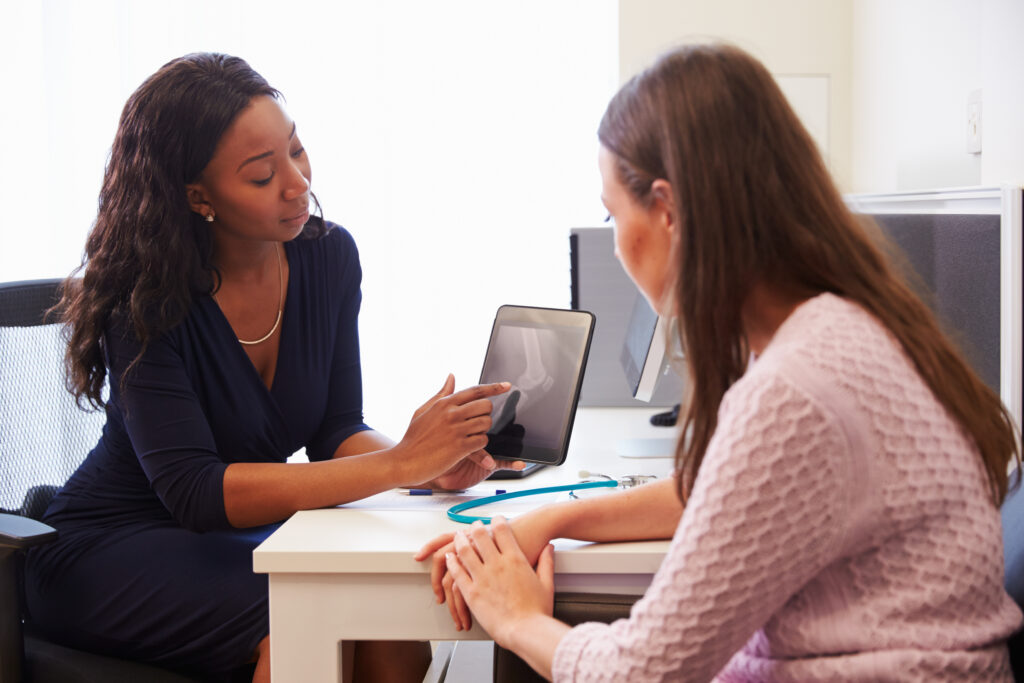Contributed by Dr Dominique Thompson
Names have been changed to maintain confidentiality.
The ripple effect of eating disorders is extensive and toxic.
These pernicious and devastating conditions not only have the highest mortality rate of any mental health disorder but also have an exceptional ability to disrupt the lives of the people who love and care for the sufferers.
 As a GP I spent a significant part of my working life trying to support the families and friends of the young people I saw with an eating disorder, as well as caring for my patients, and it was always difficult and demanding. As the number of young people now coming forward with eating or body issues rises, the need to support their families is also going to rise. As healthcare professionals it may help to know what is on their mind, and what might be useful to offer them.
As a GP I spent a significant part of my working life trying to support the families and friends of the young people I saw with an eating disorder, as well as caring for my patients, and it was always difficult and demanding. As the number of young people now coming forward with eating or body issues rises, the need to support their families is also going to rise. As healthcare professionals it may help to know what is on their mind, and what might be useful to offer them.
You will be familiar with the sorts of issues parents struggle with.
I remember one mum, Nadine, in particular. Her daughter was a new student, away from home for the first time, having had inpatient eating disorder care in the year before university. Nadine desperately wanted her daughter to be able to enjoy her new life, make new friends and continue her recovery, but felt helpless as she watched the young woman deteriorate as the weeks passed and the pressures of university life became real. The sense of ‘failing’ her daughter, Nadine’s own sadness, and the impact on the rest of the family were devastating to see and as a GP I, too, felt powerless.
Many years have passed and fortunately there are now many more options for supporting parents like Nadine, that I wish had existed then.
New Resources
The good news is that there are new resources being created all the time which can help us to support the supporters more than ever before. Some of my favourites are shared below. 
Over the last couple of years I have focused on developing support for parents of teenagers in particular, but also parents of students and any young person who is struggling. Every week I receive personal messages asking for guidance and help from desperate parents who want to know how to manage an increasingly difficult situation at home involving self-harm, or eating and weight issues, among others. These painful scenarios cause enormous distress to both the young person and their family and supporters, and the themes running through the messages are common. (I can’t offer clinical advice of course, but I can and do signpost and advise).
Common Questions
The most frequent questions parents and carers ask are, ‘How do I help my child?’, ‘what should I say to them?’, ‘where can I get professional support in an ever pressured NHS?’ and ‘where can I get separate wellbeing and mental health support for myself?’ as the parents and carers reach their limits. They often feel at their wits’ end and don’t know where to turn.
As GPs and other healthcare professionals we can help.
Don’t Delay
First of course we need to focus on our patient with an eating disorder, and take what they are telling us seriously, never dismiss it as ‘a phase’, or say ‘let’s wait a little longer’ before intervening. Eating disorders are one of many conditions where the earlier we intervene the better the outcome and leaving it longer will not help the situation.
It may also help professionals to be aware that studies by B-eat have shown the significant delay that those with eating disorders experience before reaching out for help, and then before being referred on and accessing specialist support.
The average delay between onset of symptoms and starting treatment is 3 and a half years.
The message for us here is that by the time the person sits in front of us in our consulting room they will usually have had symptoms for months if not years, even if they have not recognised that there is an issue. Delaying referral and action can only make things worse.
NICE guidance is clear that referral should be made without delay to a community eating disorder service. This will alleviate some of the stress for the parents and carers. Ongoing GP follow up appointments in the meantime will allow for monitoring and progress, as well as a review of physical health and the need for treatment of co-existing mental health conditions, like anxiety or depression.
1.2.10 If an eating disorder is suspected after an initial assessment, refer immediately to a community-based, age-appropriate eating disorder service for further assessment or treatment.
Check on the parents and carers
As the young person’s care becomes organised and planned it may be a good time to check in with their carers and ask how they are doing. You might then like to share with them some of the following resources, with the offer to discuss any queries they may have, once they have taken a browse through.
The free Eating Disorder Support app was created by a team of experts and is a wonderful and extensive source of guidance for all those in need of advice, not just the patient. It has a whole section on ‘Supporting Others’ which addresses the questions raised so often by families.
This online resource guide is frankly brilliant. Created by the Bristol Eating Disorder Health Integration Team, it is designed to support anyone affected by eating disorders (those struggling personally and their parents, families, and friends, as well as professionals).
It contains a range of signposting information, advice and guidance from both local and national organisations and charities.
Finally parents really appreciate support from people in a similar position to themselves, so if you are aware of any local charities that provide parent support groups, or online groups via Facebook and so on, do share them as this can be transformational. Beat has a range of support as does AnorexiaBulimiaCare who offer 1 to 1 support calls.
In summary
Being a healthcare professional brings many challenges but being able to help those who support our patients can be very satisfying. The memory of Nadine and her daughter have stayed with me for years, most powerfully because of how helpless I felt in supporting a devoted and loving mother who was desperate to help. As GPs we now have many more options at our fingertips to alleviate the suffering of parents, so if we can alleviate their stress, equip the carers and thus support the supporters, we will also maintain and promote the recovery of our patients.
I wish you well this Eating Disorders Awareness Week and thank you for everything that you do.
Dr Dominique Thompson is a former university GP, GP member of the NICE Eating Disorders Guidelines Committee 2017, NICE Clinical Advisor, author of the Student Wellbeing Series, and a contributor to the Eating Disorders Support app. Find out more about Dominque’s work here.
To mark Eating Disorders Awareness Week 2022, HLP’s Mental Health Transformation and Children and Young People’s Mental Health teams have planned a week of activities to raise awareness around the symptoms and conditions of eating disorders. Visit our ED2022 webpage to see the full schedule.
